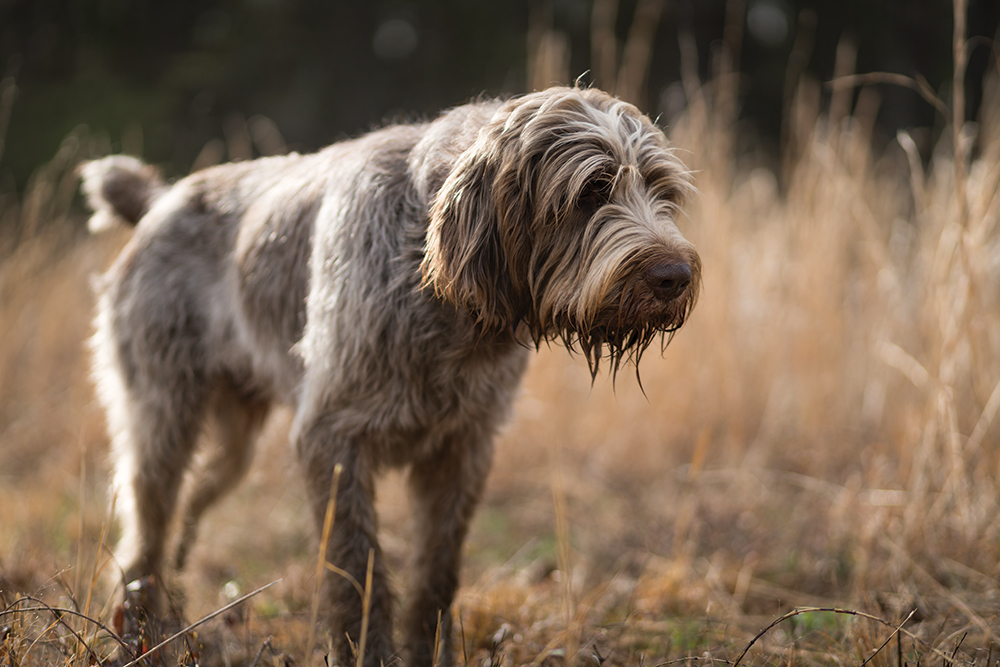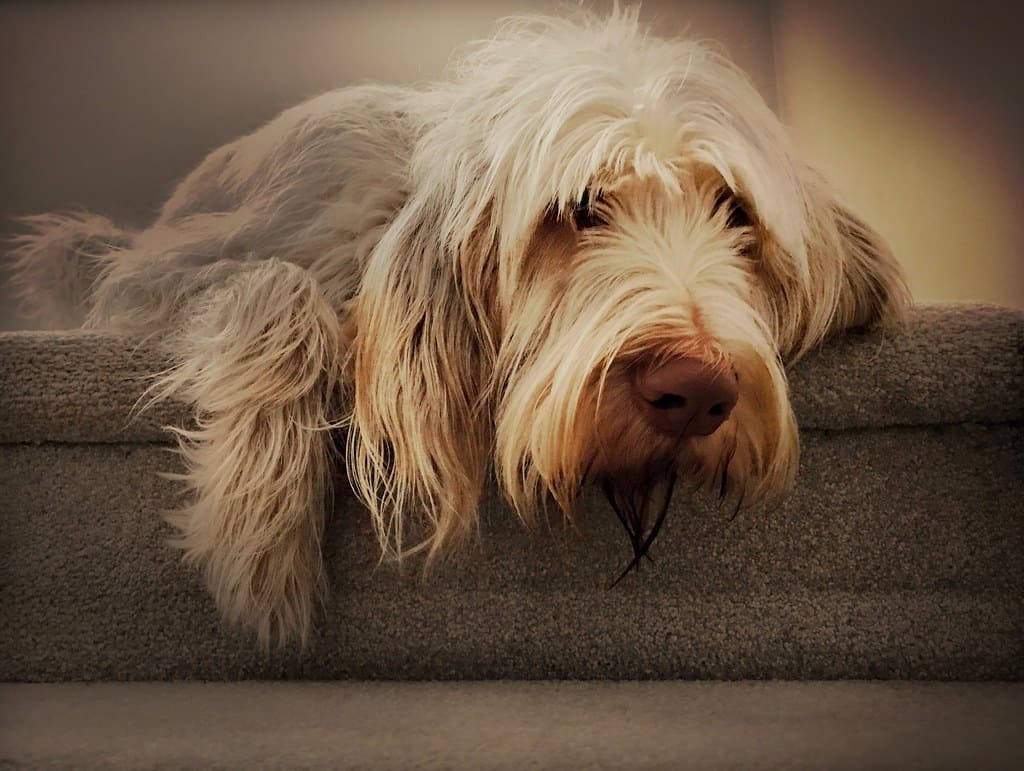Other Names: Spinone, Bracco Spinoso, Italian Spinone, Italian Griffon, Italian Wire-haired Pointer, Italian Coarse-haired Pointer.
The Spinone Italiano is an Italian breed of hunting dog, traditionally used for tracking, pointing, and retrieving game.
History
The origins of the Spinone are unknown. Rough-haired dogs of pointer type have been present in the Italian peninsula at least since the Renaissance. In a fresco painted by Andrea Mantegna in about 1470 in the Camera Degli Sposi of the Palazzo Ducale of Mantova, in Lombardy in northern Italy, a dog of this kind is shown lying under the chair of the duke, Ludovico III Gonzaga. Jacques Espée de Sélincourt, in his Le Parfait Chasseur of 1683, says of griffon dogs that “the best come from Italy and from Piedmont”.
The modern Spinone originated in Piedmont, in north-western Italy, in the nineteenth century, and was for some time the most important hunting breed of that region. During the Second World War, it was much used by the partisans, both to track enemies and to carry food. After the War, breed numbers were much reduced; a breed society, the Famiglia Dello Spinone, was formed in 1949. The Spinone was definitively accepted by the FCI in 1955. A second breed society, the Club Italiano Spinoni, was established in 1973.
In the period from 2010 to 2018, new registrations in Italy varied from about 400 to about 650 per year; every year, the orange-and-white colouring represented slightly over half of the total.
Characteristics

The Spinone has a square build (the length of the body is approximately equal to the height at the withers). It is a strong-boned, solidly built dog with a well-muscled body and limbs that are suited to almost any kind of terrain. A brown and white Spinone can sometimes be confused with a German Wirehaired Pointer by someone unfamiliar with the breeds. However, the long head and pronounced occipital are unique to the breed. He has an expression that shows intelligence and understanding and is often described as having human-like eyes. The tail of the working Spinone is customarily docked at half its length (approximately 14 to 20 cm or 5.5 to 8 inches from the base of the tail). Non-working UK based Italian Spinones are no longer docked, in accordance with current legislation. Even as adults, Spinoni retain disproportionate, puppy-like, webbed paws which make them powerful swimmers.
Coat colours of the Spinone.
The coat is tough, slightly wiry, and close-fitting. The preferred length is 4 to 6 cm (1.5 to 2.5 in) on the body; however, the ears, muzzle, head, and parts of the legs and feet are covered with shorter hair. Eyebrows have longer and stiffer hair; longer but softer hair covers cheeks and muzzle, creating a profuse moustache and beard.
It may be solid white, white with orange markings, orange roan with or without orange markings, white with brown markings, or brown roan with or without brown markings. The pigment of skin, nose, lips, and the pads on their feet should be a fleshy red-orange in white dogs, slightly darker in orange and brown roan dogs. The white and orange colouration is unique amongst the wire-haired gun dogs.
A Spinone usually lives for about twelve or thirteen years. Neurological disorders that have been identified in the breed include cerebellar abiotrophy and idiopathic epilepsy.
